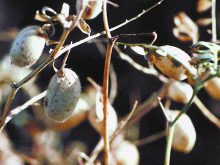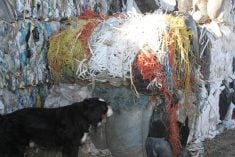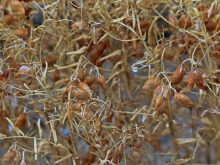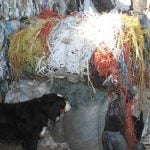Effects from last year’s cool, slow-to-grow conditions are still being felt.
Germination tests of some peas and lentils from the 2009 crop are coming up short.
Syngenta says in cases where producers were forced to terminate their pulses with Reglone before the seed was mature, some seed is failing to meet germination goals.
The company said spraying of Reglone outside of label recommendations can create germination issues.
Syngenta is recommending that where producers applied Reglone in questionable conditions last season, they should use professional seed labs to test their pulses for germination and vigour.
If germination is less than 80 percent, farmers should consider new seed. The crop should be cleaned, with small seeds being culled from the product.
Seed treatments assist compromised seed in becoming established in the soil and the company is recommending treating any questionable seed.
Producers should also ensure careful planting into ideal seed bed conditions, providing the best possible early development of the crop.














